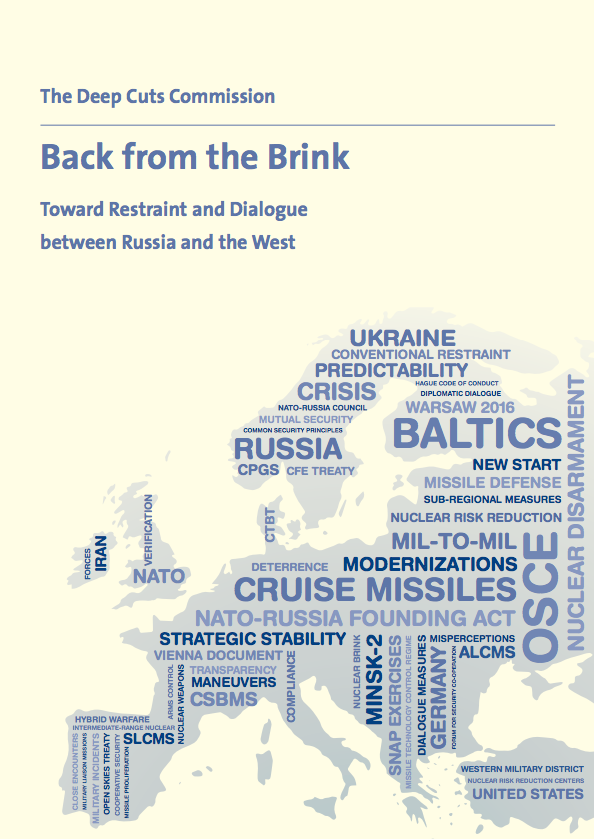Back from the Brink Toward Restraint and Dialogue between Russia and the West

Russia and the West are on the brink of a renewed confrontation. Driven by mutual perceptions of
insecurity, both NATO and Russia are ramping up their defenses along the Baltic fault line. Some of
these increased military activities are inherently dangerous. If not managed properly, close military
encounters in adjoining airspaces and on the neighboring seas risk unintended escalation, possibly
up to the nuclear level.
One of the last remaining pillars of mutual restraint, the 1987 Intermediate-range Nuclear Forces
(INF) Treaty, is subject to heated compliance disputes. At the same time, Washington and Moscow
are heavily investing in new and redundant nuclear systems.
The renewed confrontation and the lack of communication might bring back the kind of harrowing
crises we had during the Cold War.
The good news is that there are still areas of cooperation in the pursuit of common interests, such
as the Iran nuclear deal, the talks on Syria, and the smooth implementation of the New START
agreement. Washington and Moscow continue to show interest in maintaining what they define as
‘strategic stability’ – that is, the mutual confidence that neither side is upsetting the nuclear balance.
As much as this concept falls short of President Obama’s vision of a world free from nuclear weapons,
it still constitutes the most basic pre-condition for dialogue and restraint.
Today, dialogue and restraint are needed more than ever since the end of the Cold War. In order to
prevent misperceptions, miscalculations, and the potential return of a costly arms race, both Washington
and Moscow have to rediscover the instruments of diplomatic dialogue, military-to-military
exchanges, and verifiable arms control.
Foreword 3
Introduction 4
Executive Summary 8
1. European Security 10
1.1 The Security of the Baltic Area 11
1.2 Dangerous Military Incidents 16
1.3 The Role of the OSCE 20
2. The INF Treaty and Cruise Missile Proliferation 23
3. Strategic Nuclear Arms Control 27
The Deep Cuts Commission 32
No hay comentarios:
Publicar un comentario